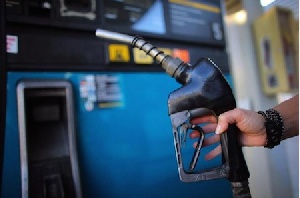Business News of Thursday, 2 June 2016
Source: tv3network.com
SMEs hardest hit by continuous fuel price increments
Small and Medium Scale Enterprises (SMEs) are the worst hit by the continuous increase in prices of petroleum products in the country.
The media reported last month that prices of petrol, diesel and Liquefied Petroleum Gas (LPG) that petroleum products have been increased about three times this year - 12.41 per cent, 12.31 per cent and 16.6 percent.
This was occasioned by the energy sector levy that came into force in January and subsequent review of petroleum products based on the automatic adjustment formula.
The upward adjustments were also influenced by changes in price of crude oil on the international market as well as the exchange rate.
Meanwhile, SMEs with small revenue streams are feeling the pinch as the cost of transportation takes a huge chunk of their operational expenses.
In an interview with Onua FM, Patrick Duncan, a young entrepreneur in the printing industry said the cost of fuel is driving him out of business.
“I have a continuous rise in the amount of money I spend on fuel for every month since we entered 2016,” he said.
“My company has a car for delivery and marketing and I spent GHC 580 in January on fuel, February claimed GHC 620, I spent GHC 686, GHC 706 and GHC 920 march, April and may respectively,” he lamented.
“I mean if I spend GHC 3,512 on fuel as a young entrepreneur how can I expand my business and employ more people,” he wondered.
Explaining the dire situation most SMEs are faced with, Mr. Duncan said the company could not pass on its operational cost to customers, otherwise they will be driven away.
“Already, we are recording a fall in sales so I cannot risk driving away customers by increasing my rates,” he lamented.
“In fact SMEs are really suffering, we can hardly breakeven and not to talk of making substantial profit,” he said.
But for the services of an employee who rides bicycle to deliver products to customers, Duncan’s believed that his expenditure on fuel would have been more than he recorded.
Though there are signs that prices of crude oil will continue to increase on the international market, experts believe consumers of fuel are paying more than they should.
This they attributed to the high levies on petroleum products and the depreciation of the cedi against international currencies especially the dollar.
Currently the cedi is trading at GHC 3.84 against the US dollar.
Meanwhile the Africa Center for Energy Policy (ACEP) claimed petroleum levies imposed on petrol is GH¢0.12 per liter; diesel GH¢0.10 per liter; and LPG GH¢10 per kilogramme.











